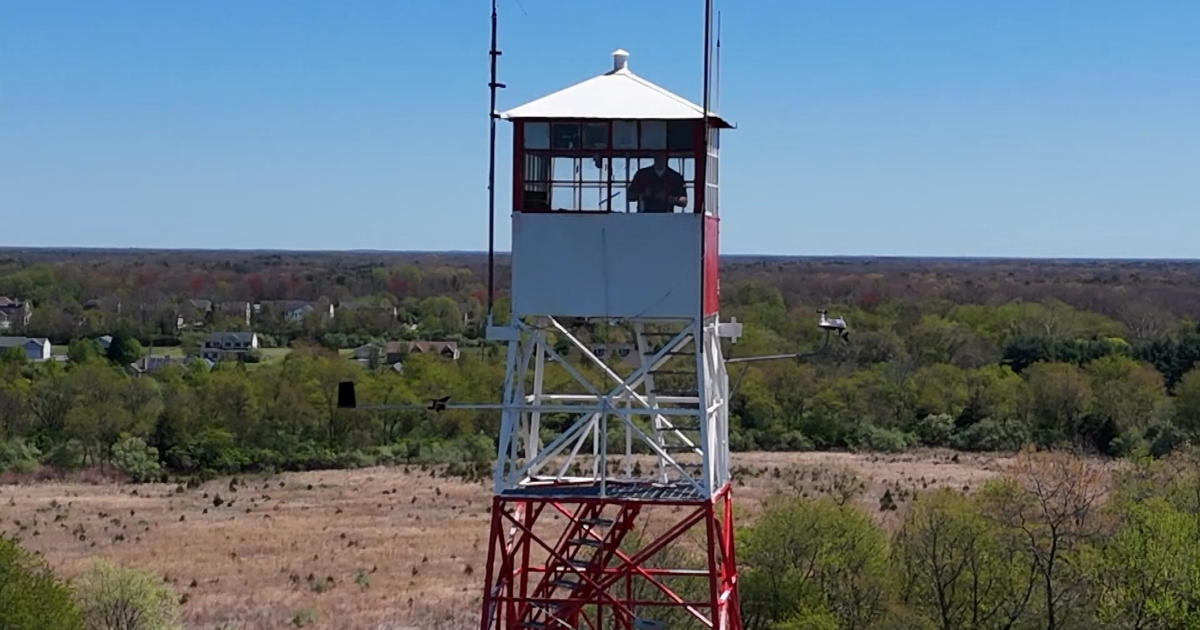Camden Waterfront Developer Has Seen Generations Of Plans
CAMDEN, N.J. (AP) — Camden's waterfront began losing its industrial identity a half-century ago and ever since, it's been a place defined by big plans for a rebirth, many of which never came to fruition in a city that is now among the most impoverished in the country.
The president of Liberty Property Trust, the company that's planning a $1 billion development including two office towers, more than 300 units of housing and a hotel, knows all about that history of dreams on the waterfront — a museum, a basketball arena, a corporate headquarters, a housing development, an aerial tram crossing the river to Philadelphia — never being built.
Bill Hankowsky's first job out of college, back in 1973, involved helping make those plans for Camden's city government. George Norcross, a political powerbroker, credits him with clearing the way for what's come to the waterfront since then.
Hankowsky, now 64, does not see his project as a career capstone that finishes a job he started decades ago. Just smart business. "I'm coming back because this is good for Liberty Property Trust," Hankowsky told The Associated Press. "But it is an opportunity."
Camden is in a moment of rapid change. A state government takeover has shaken up the school district and crime has dropped sharply since the county government took over policing more than two years ago. State tax incentives aimed at getting companies to bring jobs to the city have helped spur plans for several companies to move in.
But the city still has deep problems decades in the making.
Its population hit 125,000 back in 1950 at the peak of the city's industrial prowess when RCA was making electronics and recording records. And every fall brought the smell of tomatoes from the Campbell Soup factory.
But since then, people fled for the suburbs by the thousands and most of the industry left.
When Hankowsky as an intern in city government in 1973 while starting work on his master's degree at the University of Pennsylvania, much of the remaining middle class had recently fled after riots two years earlier. Malls in the suburbs were booming and Camden's department stores and movie theaters were disappearing. Already there was talk of redeveloping a swath of the waterfront near downtown that had been abandoned by factories.
Hankowsky's mission was to figure out how the city should deal with a change in federal policy. Under the Nixon Administration, the U.S. was preparing to consolidate community funding into block grants that would give local governments more say over spending. Hankowsky found that Camden didn't have a system for dealing with such decisions and recommended establishing a community development department. The mayor agreed and appointed Hankowsky to run it. The intern from Brown University never finished his master's at Penn.
Hankowsky's job included overseeing the development of a master plan for the city. The vision for the waterfront, like in many cities trying to repurpose such once-industrial tracts, was a ribbon of parkland along the Delaware River with room for private development just inland.
Plans called for various mixes of housing, offices and entertainment. Parts of the vision came to be: A former RCA building is now luxury apartments, there are some offices, an amphitheater, aquarium and minor-league baseball stadium. The stadium's only tenant, the Camden Riversharks, announced last week that they would cease operations after failing to reach a lease on the county-owned stadium; officials say they've talked with other teams that could move in.
"We were always waiting for one large development that would bring the whole thing together," said Tom Corcoran, who from 1984 until 2009 ran Cooper's Ferry Development Corp., which prepared the industrial sites for new life.
In September, Hankowsky was joined by Gov. Chris Christie, renowned architect Robert A. M. Stern and local officials to announce the project, which would be the most expensive private building project ever in Camden.
Hankowsky, who went on to work for government in Philadelphia and ran the Philadelphia Industrial Development Corp. before joining Liberty, a Malvern, Pennsylvania-based developer responsible for several of Philadelphia's most prominent buildings, says conditions are finally right to build now. The region's economy is doing well, interest rates are low and the efforts to improve Camden make it more attractive. Plus tax credits would cut costs for businesses moving into the development just as more young adults want to live in cities.
"You have to be nervous when people say, 'it's different this time,'" Hankowsky said. "But sometimes it is different this time."
(Copyright 2015 The Associated Press. All rights reserved. This material may not be published, broadcast, rewritten or redistributed.)



